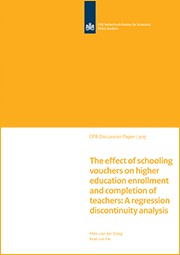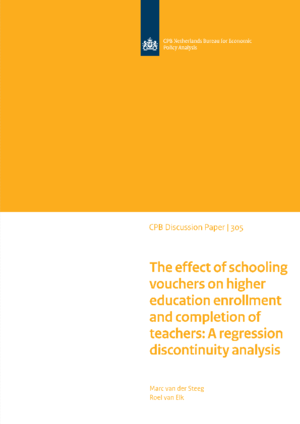The effect of schooling vouchers on higher education enrollment and completion of teachers: A regression discontinuity analysis

Read also the accompanying Background Document (only in Dutch).
The discontinuity in the probability of being assigned a voucher arises due to budget constraints in the first application period. Our estimates suggest that effects of voucher assignment on both higher education enrollment and completion rates are in the order of 10 to 20 percentage points as measured five and a half years after application. Relative to a baseline enrollment rate of 77 percent and a baseline completion rate of 54 percent (i.e. of applicants that were not assigned a voucher), these effect estimates correspond to a 12 to 29 percent higher enrollment and to a 17 to 42 percent higher completion. Effects on enrollment and completion are relatively small for shorter studies (up to one year) and for teachers that had already started at the time of application. The teacher voucher crowds out both funding by schools out of their regular professional development budgets as well as financial contributions by teachers themselves. Our results suggest small positive effects of voucher assignment on retention in education as measured four years after application.
Authors

